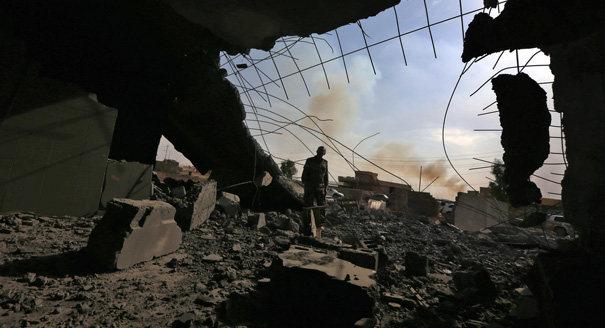On the eve of election day in the United States, many in the Middle East are wondering what the outcome of the presidential election will mean for the region. Diwan asked Maha Yahya, the director of the Carnegie Middle East Center, for her thoughts in the final hours before voting.
Diwan: Tomorrow, the U.S will hold its presidential election. How do you anticipate that each candidate will address the Middle East?
Maha Yahya (MY): Donald Trump is an isolationist, who believes that America can only be great again if it turns away from the rest of the world. Hillary Clinton, on the other hand, is an internationalist who believes that America’s greatness lies precisely in wielding its values and influence across the world in order to address global challenges.
A Clinton win would possibly mean a more assertive U.S. role in the Middle East. However, this does not necessarily imply a more interventionist policy in military terms. Rather, Clinton may be more active by seeking to embrace Gulf countries that are currently feeling sidelined in America’s attentions. One consequence of this is that she may work towards a more cohesive approach in Syria between Qatar, Saudi Arabia, and Turkey in arming and supporting the rebels. In the process, she will probably seek to contain Russian President Vladimir Putin’s actions in the region. She may also try to reinvigorate the Israeli-Palestinian peace negotiations, possibly using former president Bill Clinton as an adviser or mover of negotiations.
Diwan: In specific terms how might Donald Trump be different than her?
MY: A Trump victory will bring with it a dangerous increase in populism and demagogical posturing, which may embolden dictators in the region to do the same. His presidency will be characterized by further disengagement from the Middle East, without a clear agenda for tackling issues such as terrorism or the Islamic State. There will be a greater reliance on Russia in dealing with Middle Eastern crisis and Trump is likely to give dictators such as Bashar al-Assad a new lease on life. If Trump lives up to his promise to move the U.S. embassy in Israel to Jerusalem and recognizes the city as Israel’s capital, the peace process will likely unravel, triggering a third and far more brutal Intifada.
Diwan: Beyond the Middle East, what does the future hold for American power in the world?
MY: A Trump presidency will reduce the considerable leverage and potential of the United States in the world and will entice further populist rhetoric across the globe. With a Clinton victory, in turn, the leverage and status of the United States as a superpower may be rejuvenated. Allies, particularly those in NATO, will breathe a sigh of relief.






